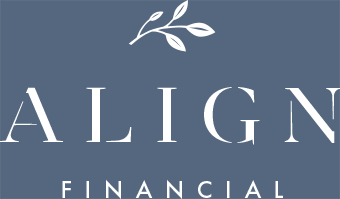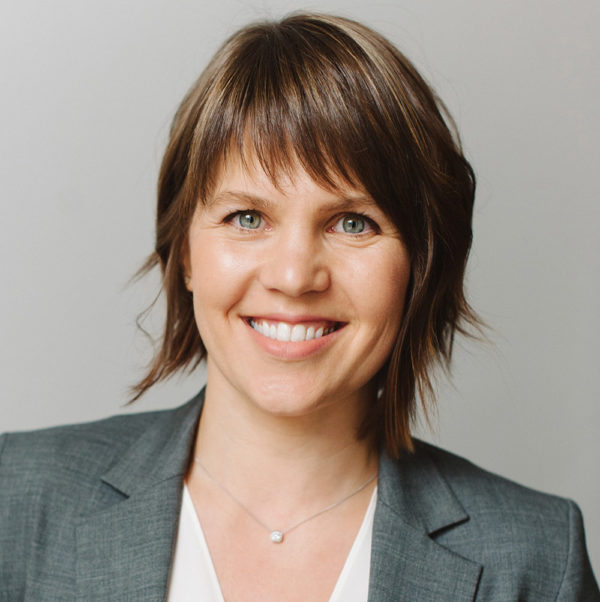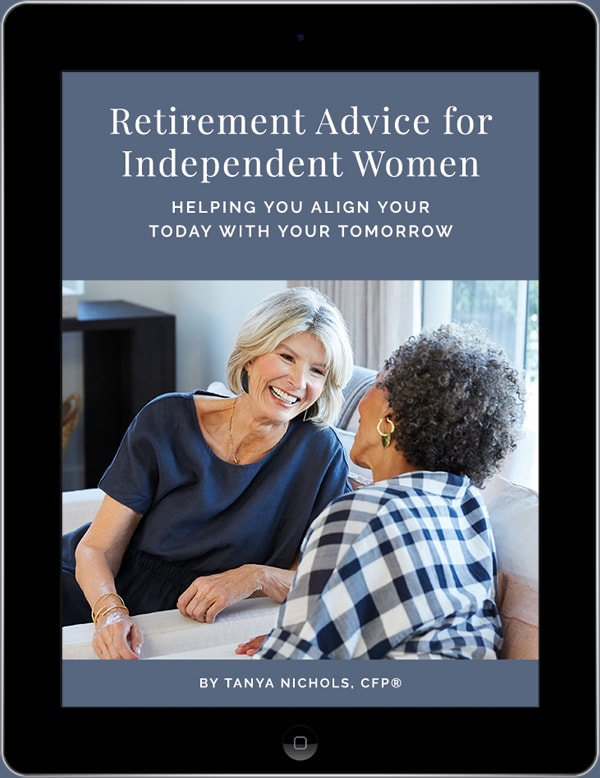Just as no two people are ever the same, neither is any financial situation. We all have different relationships with money, and your net worth isn’t a direct indicator of your attitude about your financial life. So with all these different ways of dealing with money, it makes perfect sense that pretty much every financial advisor would be different, too.
As such, that can make the task of finding the right kind of financial advisor for you a pretty confusing one. How do you find the best one to suit your needs? And what if you don’t necessarily even know what your needs really are?
I’ve seen first hand how a healthy relationship between your money and your priorities can make an impact on your life. Finding the right financial professional to help you manage your money in a healthy and impactful way is crucial.
Because money isn’t really the key to freedom. Building an awareness of your values and priorities and a willingness to use money as a tool to advance them – that’s what really opens the doors to a whole world of possibility.
Finding Your Financial Advocate
An outside perspective on your financial situation is invaluable, and that’s what a good financial planner can really help with. You want to find someone who will serve as a sounding board during major life and financial events, as well as the smaller, though no less important, occasions.
Navigating financial decisions requires more than sophisticated software; it’s about understanding your life and your money, and how these intersect. It’s about imagining your possibilities, and raising your awareness of how to realize them. Life can’t be boiled down to graphs and reports.
A real, meaningful relationship with a financial advisor requires thoughtfulness, good judgement and experience to guide you through life’s many chapters. So in order to make sure you find the right person to fill this important role in your life, you need to make sure you ask them the right questions.
You might think that the only question that matters is, “How will you make me the most money?” But there is so much more you need to know. We’ve outlined the key questions for you below, but it will also be important for you to make sure that you get a good sense from the financial advisor you are interviewing. You need to like them, and feel you can trust them and build a long-term partnership.
17 Questions You Should Ask a Financial Advisor
1. Are you a fiduciary?
The answer to this question should be “yes.” Fiduciaries legally must put clients’ financial interests above their own. Not all financial advisors are fiduciaries. (Note: At Align Financial, we are fiduciaries!)
2. What are your credentials?
When you ask this question, you don’t want to hear anything along the lines of, “I specialize in retirement accounts.” You need a more specific answer. When it comes to a financial advisor, credentials matter. Those fancy letters after the advisor’s name prove that they have dedicated a lot of time to mastering their profession.
Ideally, your financial advisor would be a CFA (Chartered Financial Analyst), CFP® (Certified Financial Planner), or PFS (Personal Financial Specialist). If you have certain financial needs, you might look for a more specialized credential, such as a CDFA® (Certified Divorce Financial Analyst).
3. How are you compensated for your services?
There’s a variety of ways advisors can charge clients. Decide which payment methods you prefer, then find an advisor who uses that strategy. Will you pay an advisor a flat fee or an hourly rate? Are they fee-only or fee-based? There are several options.
4. Do you get paid by anyone other than your clients?
Fee-only advisors make money exclusively from their clients. Fee-based earn a fee based on the assets they manage for their clients, but could also sell products for a commission. There are pros and cons to each approach. But when interviewing an advisor, you should be positive they’re going to place your needs first.
5. What is your investment philosophy/approach?
Just as you’d want to understand the approach of someone counseling you about how to run a business or strengthen your marriage, you should also be familiar with the approach of the person advising you about investments. How do they select the specific investments in your account? Do they use individual stocks or mutual funds? How often do they rebalance or change your accounts? These are all important questions to answer to make sure you know who is making the investment decisions with your nest egg.
6. Do you specialize in certain types of clients?
Many advisors focus on a variety of clients. However, some specialize in certain categories of people. For example, at Align Financial, we specialize in working with women (and a few awesome men) within a few years of retirement and those that are already retired. We’re passionate about helping our private clients take control of their finances and plan for their retirement income with confidence and pride. It’s helpful to find an advisor who has experience working with people in your financial situation.
7. What services do you provide to your clients?
A financial advisor may provide tax planning, college planning, strategies to get out of debt, life insurance, education, investment management, and more. Think about your potential future needs as well as your current ones.
8. Do you have any minimums?
Many advising firms require a minimum investment or minimum fee to establish a partnership. Find an advisor whose minimum is realistic for you. At Align Financial, our minimums are currently $1,500,000 in investable assets.
9. How often will we meet?
Most advisors have a general rule about how often they meet with clients, e.g., annually, semi-annually, or quarterly. Of course, if you request a supplemental meeting, most people are happy to oblige.
Choose an advisor whose schedule works for you. You don’t want someone who seems overbearing, but you probably don’t want someone so hands-off that you forget why you’re paying them.
10. How often will I hear from you? And How?
Will the firm email you weekly? Set up a phone conversation monthly? Request an annual face-to-face meeting? Ask how often you financial advisor will be in touch and how. If you know what to expect upfront, you’ll be on the same page.
11. Why did your last client leave?
Have you ever interviewed for a job and asked the potential employer, “Why is this position open?” Basically, you want to know why the last guy quit. There could be a simple explanation, or the answer could raise some red flags.
12. Why did your last client hire you?
This advisor probably stands out to other clients for a reason. Their answer may reveal what sets them apart from their competitors.
13. What do your clients like about working with you?
Choosing a financial advisor isn’t just about the numbers. You should make sure you’re going to like working with this company, and their team. It’s helpful to know if other clients like the way the advisor and their team communicates, their unique approach to investing, or the fact that they always put clients’ needs first.
14. How do you measure success with your clients?
There are several ways for advisors to measure success, both monetarily and through their clients’ satisfaction. Here are a few examples:
- Clients ability to achieve their goals
- How a client feels about their money
- How much money they made (or lost) this year, or over many years (Investment return)
Any advisor should be able to provide an answer to this question and explain why they’ve chosen a particular method.
15. Are there any conflicts of interest I should be aware of?
All financial advisors have some conflicts of interest—it’s just the nature of the work. For example, they may charge higher fees for certain services than others, and as a result, they may encourage you to sign up for services that cost you more and benefit them.
But there are certain conflicts of interest you’ll want to steer clear of.
If the advisor you’re interviewing is not a fiduciary, there is likely a conflict of interest. Advisors without fiduciary status aren’t legally obligated to put your needs above their own, so the rules allow them to look after themselves first. Advisors who work on commission also have the potential to push certain products on you so they can earn more money.
16. How does your team work together to work with me?
Gain insights into how the team works. How does the team work for you behind the scenes, and when will you interact with whom? Choosing a company that works as a team, rather than hiring one individual, could mean you receive more attention as a client.
17. Will you coordinate your advice with my tax situation?
Just as all financial advisors are not created equal, neither are all clients. Your advisor should take your specific needs into consideration when handling your money, especially your tax situation. Give the advisor an opportunity to talk about how they will tailor their advice to your circumstances.
What Happens Next?
Once you’ve asked these 17 questions, you should feel confident about whether or not they have the professional capabilities to help you. But don’t forget these equally important questions:
- Do you like them?
- Do you trust them?
- Do you feel comfortable talking to them?
- Do they actually listen to you, and not just talk at you?
- Do you think you can build a long-term partnership with them?
Here at Align Financial we have carefully crafted a simple but deeply impactful approach to wealth management. We base our relationships with clients on three things: competence, compassion and trust.
We strive to put your financial interests ahead of our own and help connect your money to your life in a way that feels right to you and your family. Because we believe that’s how good financial advice should be done.
If you’re searching for a financial advisor, we’d love to hear from you. We take clients from all over the country and can work with you virtually – you don’t need to be local to Duluth.
Contact us today, and we’ll be happy to answer these 17 questions, and any others you’d like to ask! We also invite you to explore the rest of our website, where you can find more information about our company, our Founder, what our clients look like, how we help them, and much more.













